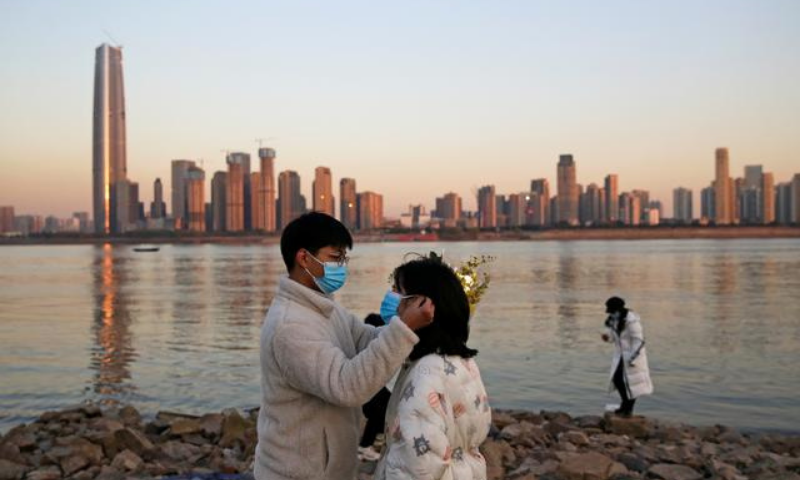WUHAN: The Chinese city of Wuhan marked one year since the start of its traumatic 76-day coronavirus lockdown on Saturday, while the pandemic raged elsewhere and governments scrambled to put in place new measures.
Europe faced a worsening struggle with production woes hitting supply of the AstraZeneca/Oxford vaccine as well as the Pfizer/BioNTech shot.
Around the world, more than 2.1 million people have died of Covid-19 since it emerged in China in December 2019, with over 98 million infected.
In the world’s worst-hit country, US President Joe Biden warned America’s death toll could pass 600,000, the highest estimate yet that would mark a devastating rise on the 400,000 fatalities so far.
But the picture was vastly different in Wuhan, where humming traffic, bustling sidewalks, and citizens packing parks and public transport underscored the scale of the recovery in the metropolis of 11 million where the pathogen first emerged before going global.
“I think Wuhan is quite safe now, safer than my hometown and most places in China,” 21-year-old resident Wang Yizhe said. Elsewhere in China, new outbreaks have prompted harsh responses. AstraZeneca said that “lower yield” at one of its vaccine-making sites would affect deliveries across Europe.
Lithuania estimated it would receive 80 percent fewer AstraZeneca doses than hoped in the first quarter, although German and French ministers tried to reassure the public of a steady supply.
Deliveries of Pfizer-made shots to the continent’s countries are already behind schedule as the US firm upgrades capacity at a Belgian plant.
At a meeting with AstraZeneca representatives, the EU Commission “insisted on a precise delivery schedule on the basis of which member states should be planning their vaccination programs”, Health Commissioner Stella Kyriakides tweeted.
Already cleared for use in Britain, EU authorities are expected to give the vaccine the green light at the end of January.
On Friday, British Prime Minister Boris Johnson said there was “some evidence” the new strain first detected in the country “may be associated with a higher degree of mortality” as well as being more infectious. At 95,981 as of Friday, the UK death toll is the highest in Europe.
The World Health Organisation reassured that fabric masks should still work in hindering the spread of new variants from Britain, South Africa and Brazil.
However, Norwegian capital Oslo toughened health restrictions after the British variant was found in a retirement home, closing all but essential shops and asking people to restrict movements.
A French government source said a new lockdown in the country looked increasingly likely with the more transmissible strain. Meanwhile the Netherlands introduced its first curfew since World War II, from 9pm until 4:30am. In Wuhan, a team of World Health Organisation experts was still in hotel quarantine ahead of a mission to investigate the source of the virus.
“All hypotheses are on the table,” WHO emergencies director Michael Ryan told a press conference in Geneva.
